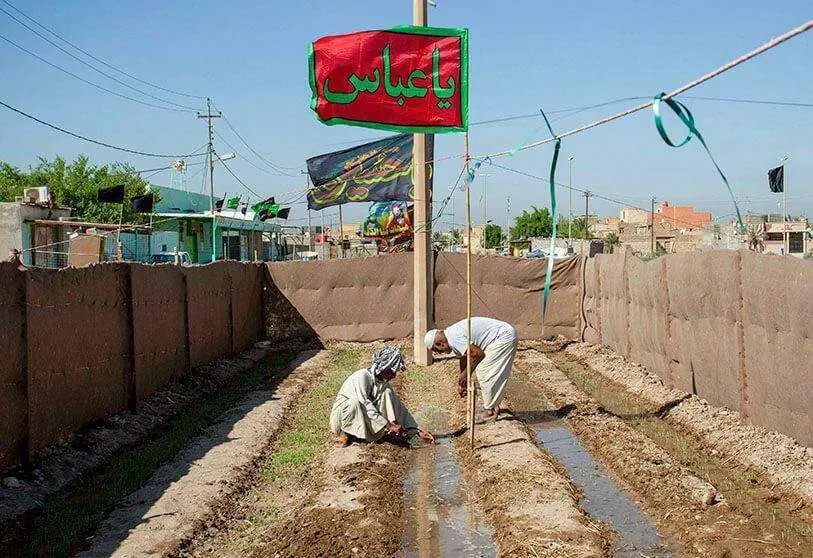Thirsty Middle East

The Middle East contains 1% of the world's fresh water resources, which is why it is so valuable to the region. In these times of climate change and global warming, water resources are drying up and the large dam policies put in place by countries are seriously threatening ecosystems and geopolitical balance. Today, water has become a weapon of war. The most powerful have the keys to the taps that they can turn on or off according to their needs and established regional policies. The most emblematic example of this situation is that of the Tigris and Euphrates, the largest Mesopotamian rivers fed by Turkey's rainwater. Ankara's control of these rivers is becoming a major political issue for the stability of the Middle East. In the absence of regional cooperation, Turkey is accused of exercising hegemonic hydropolitics and its damming strategy initiated with the Great Anatolia Project (GAP) in the 1970s threatens the survival of Syria and Iraq.
In 2018, riots broke out in Basra in the wake of drought and the filling of the Ilisu dam on the Tigris River, causing Iraq's maize, rice and cereal harvests to cease. Is the Fertile Crescent disappearing before our eyes? The current situation suggests so. Under the hashtag #الفرات_ينحسر (the Euphrates is shrinking), Syrians are sharing disturbing photos of the water level of the nourishing river continuing to drop, drying up the land inside the country. The problem has been going on for years and is getting worse. The water level of the Euphrates has dropped dramatically in recent weeks, raising tensions between Turkey and Syrian Kurdish forces. Kurdish officials in northeast Syria accuse Turkey of "reducing the levels of water flowing downstream, causing an agricultural crisis and a major power shortage in the region". The Tigris is not left out. According to the Save the Tigris Campaign, since the beginning of this year "the flow of the Tigris from Turkey has dropped from 500 to almost 200 cubic metres per second," causing electricity shortages in Iraq and Syria. Civil society and mediators are trying to find political solutions to ensure the sustainable and equitable use of water for all those living in the Mesopotamia region, promoting water as a tool for peace. But peace does not seem to be on the agenda at the moment. Iraq and Syria, two countries that remain mired in political and security instability, are thirsty and the region is struggling to find an agreement that satisfies all parties.
The Palestinian-Israeli water situation adds another layer to the geopolitical complexity of the conflict. According to Amnesty International, " Israel uses more than 80 per cent of the water from the Mountain Aquifer, the only source of underground water in the OPT, limiting Palestinian access to 20 per cent of this reserve. This is the only water resource for Palestinians in the West Bank," the human rights organisation said. Moreover, Palestinians are not allowed to dig wells without the authorisation of the Hebrew state and 96% of their water remains unfit for drinking!
Water is a powerful political lever. Jordan, a chronically water-stressed country that gets its water from the Jordan River, has signed the Johnston Agreement with Israel to share its water. And once again, the distribution of the precious liquid is far from equitable. An Israeli has 300 square metres of water compared to 190 for a Jordanian.
Further afield, Ethiopia is extending its dam by two kilometres, which should enable it - in the long term - to solve its water and electricity problems (less than half of Ethiopians have no access to electricity).
Ethiopia has consistently defended its life-saving project, but its Egyptian and Sudanese neighbours fear that the waters of the Nile, on which their respective agriculture depends, will diminish if the dam is filled to capacity. But all indications are that this possibility is ruled out and that the huge hydraulic superstructure can only be filled to 30 per cent of its capacity, according to experts. In the meantime, Egypt is fuming, Sudan is threatening and the current configuration does not bode well for appeasement.

